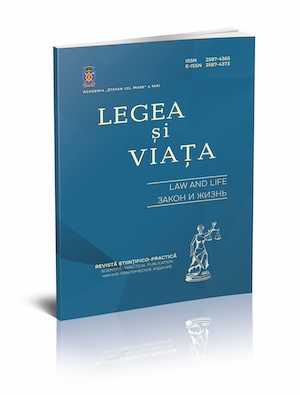Aspecte de drept comparat privind omorul săvârșit în stare de afect – experiența Republicii Federative Germania şi a Federației Ruse
Aspects of comparative law regarding murder committed in a state of affection – the experience of the Federal Republic of Germany and the Russian Federation
Author(s): Mihai TetereaSubject(s): Law, Constitution, Jurisprudence, Comparative Law
Published by: Academia “Stefan cel Mare” a MAI al Republicii Moldova
Keywords: heat of passion; Comparative Law aspects; criminal liability; emotional disorder; immoral acts caused by the victim; the criminal offence;
Summary/Abstract: Murder committed in the heat of passion is a crime that arouses increased interest both from the theorists and from the perspective of national judicial practice. Or, the criminal offence involves great complexity, being determined by the interpretation of the phrase „heat of passion”. The difficulties of the crime analyzed are also determined by the analysis of the multitude of circumstances that determined the cause of this emotional disturbance and its duration. The problem presented above constitutes one of the most difficult problems of criminal law, because it is not always easy to determine the presence of the physiological heat of passion and to distinguish from the pathological heat of passion. In order to offer a modest contribution to the analysis of this criminal offence, I resorted to the analysis of the similarities and differences between the provisions of art. 146 of the Criminal Code of the Republic of Moldova and the corresponding norms from the criminal laws of other states such as: Germany and the Russian Federation.
Journal: Legea şi Viaţa
- Issue Year: 1/2023
- Issue No: 2
- Page Range: 141-146
- Page Count: 6
- Language: Romanian

